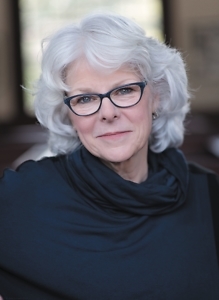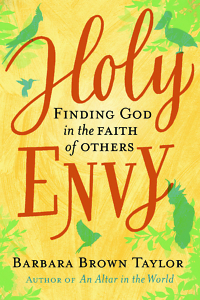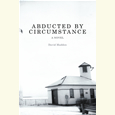The Lens is Not the Landscape
Barbara Brown Taylor’s latest Christian memoir encompasses other world religions
Barbara Brown Taylor’s website identifies her as “Writer, Speaker, Spiritual Contrarian,” and it carries a commensurate tagline: “I’m Barbara Brown Taylor. I say things you’re not supposed to say.” As in three earlier volumes of spiritual autobiography, Taylor does not shy away from controversy in Holy Envy: Finding God in the Faith of Others , a brief survey of world religions. This celebration of the most positive aspects of other faiths is the next logical step in Taylor’s spiritual journey, and like-minded readers will find much to admire in her honesty and transparency rendered in clear and incisive prose.

Ostensibly a book about her experiences teaching Religions of the World to students at a small liberal-arts college in North Georgia, Holy Envy demonstrates the evolution of Taylor’s own beliefs more than it does those of her students. An ordained priest in the Episcopal Church, Taylor famously left parish ministry after fifteen years, a change she chronicled in her 2006 memoir, Leaving Church. “The same Spirit that called me into the church called me out again, to learn the difference between the living water and the well,” she writes in her new book. “My Episcopal well, beloved as it was, was no longer enough for me to live on. I was dry as a bone.”
Twenty years later, Taylor finds that her time teaching undergraduates about Hinduism, Buddhism, Judaism, and Islam has changed her relationship to her own faith in ways she did not anticipate. “I asked God for religious certainty,” she writes, “and God gave me relationships instead. I asked for solid ground, and God gave me human beings.”
Some of those human beings are students, who hail from a region “where Christianity is as mainstream as Coca-Cola.” Many who enter the class are simply in need of an easy elective, but as the weeks go by, Taylor sees a perceptible change in the attitudes and understanding of at least a few: “All their lives, most of these students have looked out at the world through Christian glasses,” she writes. “Now, having tried on some glasses from other traditions … they are suddenly aware of how many ways there are to view reality. The lens is not the landscape. It is a way of translating the landscape so that people can walk upright on it, making some sense of what happens to them.”
 Taylor’s most powerful teachers are the religious leaders she meets during field trips to a Hindu temple, a Buddhist monastery, a Jewish temple, and a Muslim masjid (or mosque), among others. Unfailingly, they welcome the students, happy to answer their questions. At the end of a session at the Atlanta Masjid of Al-Islam, the imam memorably reassures the group: “Our deepest desire is not that you become Muslim, but that you become the best Christian, the best Jew, the best person you can be.”
Taylor’s most powerful teachers are the religious leaders she meets during field trips to a Hindu temple, a Buddhist monastery, a Jewish temple, and a Muslim masjid (or mosque), among others. Unfailingly, they welcome the students, happy to answer their questions. At the end of a session at the Atlanta Masjid of Al-Islam, the imam memorably reassures the group: “Our deepest desire is not that you become Muslim, but that you become the best Christian, the best Jew, the best person you can be.”
Taylor finds much to envy in these revealing glimpses of other faith traditions: “My spiritual covetousness extended to the inclusiveness of Hinduism, the nonviolence of Buddhism, the prayer life of Islam, and the sacred debate of Judaism.” What she does not expect is that her own faith will ultimately be pared down to its essence, strengthened by her exposure to other paths to God. Gradually she becomes more aware that Christianity relies on language considered by other faiths to be “exclusive,” “triumphal,” or even contemptuous. She recognizes that no tradition “owns” God and understands that those who disagree are not above demonizing other faiths in order to elevate their own. Step by step, she begins to exchange her fears and prejudices for a new emphasis on the shared humanity of all people.
Despite “the high cost of seeing the divine mystery through other people’s eyes,” Taylor comes to believe that there can be unity in diversity even as she feels her own faith confirmed: “Yet this is how I have discovered that I am Christian to the core. However many other religious languages I learn, I dream in Christian. However much I learn from other spiritual teachers, it is Jesus I come home to at night.”

A graduate of Auburn University, Tina Chambers has worked as a technical editor at an engineering firm and as an editorial assistant at Peachtree Publishers, where she worked on books by Erskine Caldwell, Will Campbell, and Ferrol Sams, to name a few. She lives in Chattanooga.


